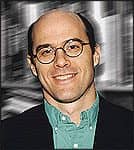
|
The Food and Drug Administration (FDA) has established a Web site designed to inform consumers about hearing aids and hearing-related services. The Web site is part of the agency’s “Medical Devices” section (www.fda.gov/MedicalDevices), and it provides basic information about hearing loss, hearing-related devices, types of hearing aids, benefits and safety issues, and hearing aids and cell phones, as well as advice on how to get hearing help.
Interestingly, the Web site also mentions the hotly contested industry issue of hearing aids versus personal sound amplifier products (PSAPs) that are widely sold online and via mass media (for details, see the May 2009 HR Online News. The FDA’s hearing aid home page states, “This site also includes information on the difference between hearing aids and sound amplifiers that amplify environmental sounds for consumers with no hearing loss. FDA regulates hearing aids, which are intended to compensate for hearing loss. On the other hand, FDA does not consider sound amplifiers to be medical devices when labeled for recreational or other use by individuals with normal hearing…”

|
However, there is little else on the Web site that addresses sound amplifiers except:
“Personal Sound Amplification Products (PSAPs), or sound amplifiers, increase environmental sounds for non-hearing impaired consumers. Examples of situations when these products would be used include hunting (listening for prey), bird watching, listening to a lecture with a distant speaker, and listening to soft sounds that would be difficult for normal hearing individuals to hear (eg, distant conversations, performances). PSAPs are not intended to amplify speech or environmental sound for individuals with impaired hearing or to compensate for hearing impairment…”
For the most part, the hearing industry has been forced to “just deal with” Internet and mail-order hearing aids, including the now-ubiquitous Lee Majors’ Bionic Hearing Aid (www.buybionicear.com), which at least acknowledges that it is a hearing aid and should therefore adhere to the medical waiver system (ie, payment is held until the company receives the signed medical waiver from the consumer). But certain PSAPs are a different story. Although there are legitimate PSAPs (eg, hunter’s/game ears, etc) that resemble hearing aids, there is also a class of devices that are little more than cheap substitutes for hearing aids. Worse, these devices circumvent the medical waiver by simply never putting the words “hearing” and “aid” next to each other in ads, and dance around the issue of hearing disability so adroitly that you’d think the companies were owned by Fred Astaire and Gene Kelly.
If you’ll harken back to the mid-90s, legitimate hearing aid manufacturers were barred and threatened with dismemberment by the FDA and/or FTC for even implying that their devices improved quality of life or helped people hear better in noise. Today, hearing industry manufacturers still spend boatloads of money to adhere to government product and marketing documentation requirements. It’s hard to believe that our government agencies can’t put that same “fear of God” into those PSAP marketers who are so obviously catering to hearing-impaired consumers in their advertisements.
It’s always easy and fashionable to rail on government agencies, so I must thank FDA and offer them kudos for a consumer Web site about hearing aids. I should also acknowledge that I was strongly critical of the FDA during the ‘90s, but later came to see some of their regulations as both even-handed and beneficial to consumers and the hearing industry. However, on this issue, I think the Agency has been allowing some marketers to observe Halloween indefinitely; the FDA’s definitions and enforcement for those PSAPs that border on “devices for the hearing impaired”—hearing aid designs masquerading as a “listening enhancement products”—warrant serious review.
Karl Strom
Editor-In-Chief





